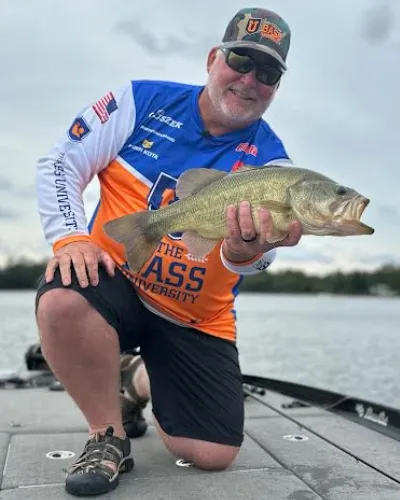Benefit of using lighter line?
I always use at least 15 pound test on almost all my applications whether I’m fishing mono, braid or fluro. I have been told this is over kill but I’ve lost a couple good fish while using light line (probably user error) . I know the general rule is to use fishing line test appropriate for the fish your catching, but is there any reason not to use heavy line (15+)? I would hate to hook a lake record one day but be caught with 6 pound test because the fish in that particular lake are generally small. Can I also ask for a general idea of what pound test and the type of line you use for different applications?
Example :
Top water- 20 pound braid
Swim bait: 20 pound braid with 12 pound fluro leader
I know this is asking a lot. Thanks in advance.
It's not all about the line. The drag on the reel and action of the rod have a lot to do with this. I fish a clear lake often and have certainly seen the difference of using lighter line, particularly on soft plastics and finesse techniques. I will fish swimbaits on 14lb fluorocarbon, but small soft plastics I use a max of 8lb. I also use a 7ft. medium action rod (for casting distance and soft tip) and a spinning reel with a quality drag system. I'm not a pro, so I don't back reel or anything fancy like that, but here's the other key, use light wire hooks when fishing lighter line. You don't need a 6/0 Trokar big nasty hook for a 4" finesse worm, and you don't need to jack 'em like you're using a big hook either. A LOT of people overset the hook. I catch bass with jaws ripped open from braided line often, and this is just unnecessary. Longer, better rods, line with less stretch, sharper/thinner diameter hooks, etc mean you don't have to set the hook like Roland Martin did back in 1983 with his 5ft 5in. pistol grip and 40% stretch mono. Lastly, to your point about snagging a lake record, it's true, you won't be able to horse a record to the boat and flip them in the boat, but many anglers will tell you, they caught their biggest bass on finesse techniques and light line, so getting the bite in the first place is the first step to catching that big bass. Once they're on, be patient, control the fish and don't give them too much slack. Let the rod do the work until they're ready to be lipped/netted.
Line is always a critical decision. I also use line heavier than some. There are certain situations that I do use lighter line. Below I've listed some of my line choices for certain techniques. I also want to note that I use Gamma line. It has proven to be the most consistent fail proof line for me.
Chatterbaits, swim jigs, spinnerbaits, texas rig and small jigs - 20# flouro
small topwaters like Pop R style baits - 12 mono
larger topwaters like spooks, buzzbaits - 20# mono
Punching mats - 65# braid
Frogs and buzz toads - 50# braid
Senko - 12-16# flouro leaders on 15# braid. Leader is selected based on the nature of the cover I'm fishing. Spinning gear
Shaky head - 8-12 flouro leaders on 15# braid. Spinning gear
Drop shot - 6-8 # flouro
I wanted to revisit this thread because I have another thought on fishing with lighter line and why it can be better. Lure action. One reason I think lighter line does so well in clear water is that the baits have subtle action and a heavy line kills that action. Many anglers are of the school of thought that the heavier line is visible and spooks the fish. I imagine this conclusion was reached because they fished a lure with 1 size line and fish didn't commit to biting, then they downsized the line and caught fish with the same lure. To me, this is just as likely that the bait itself had a more natural action with lighter line. No matter what reason, particularly with clear water, finesse techniques and highly pressured situations, lighter line seems to get more bites.



